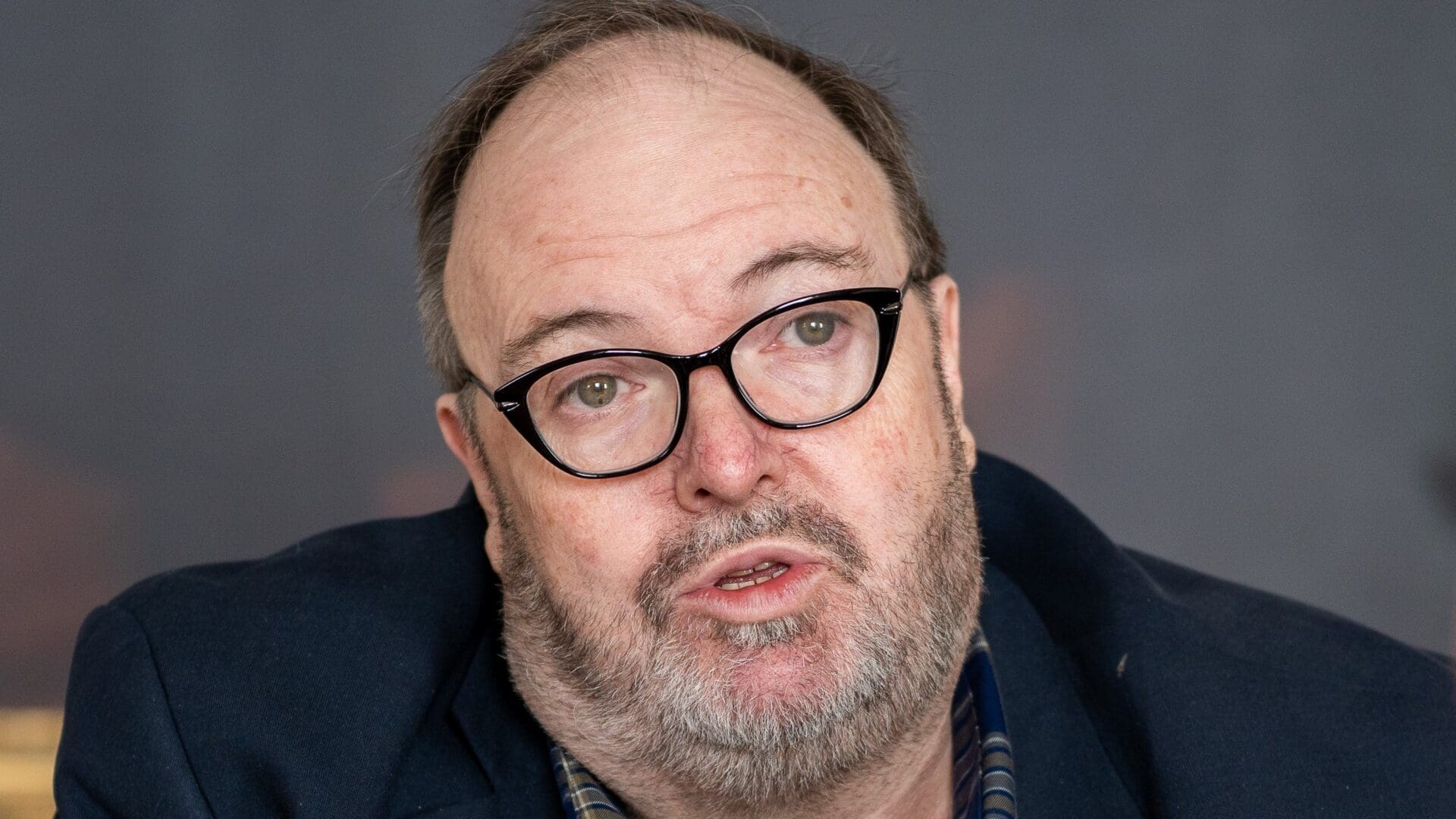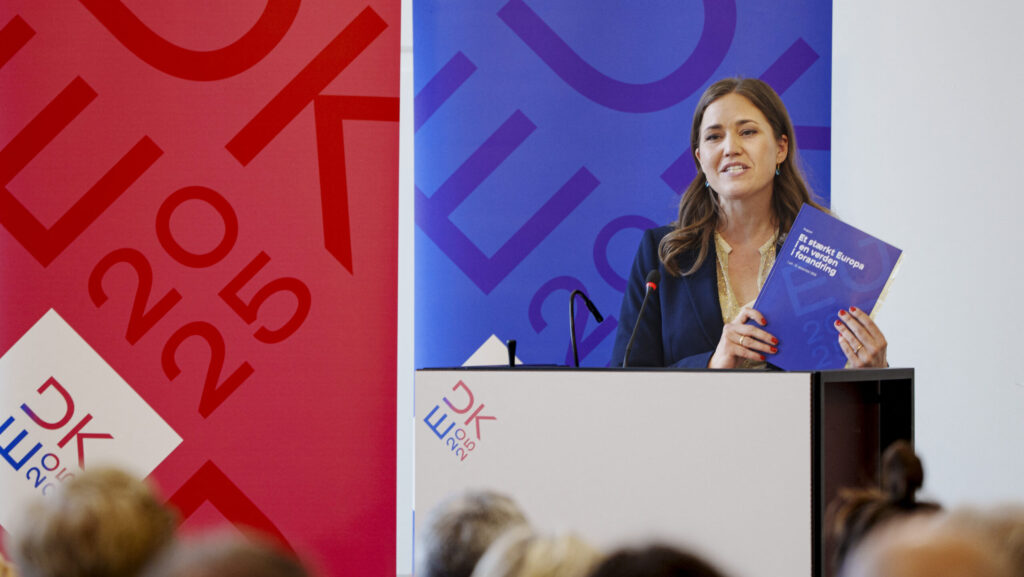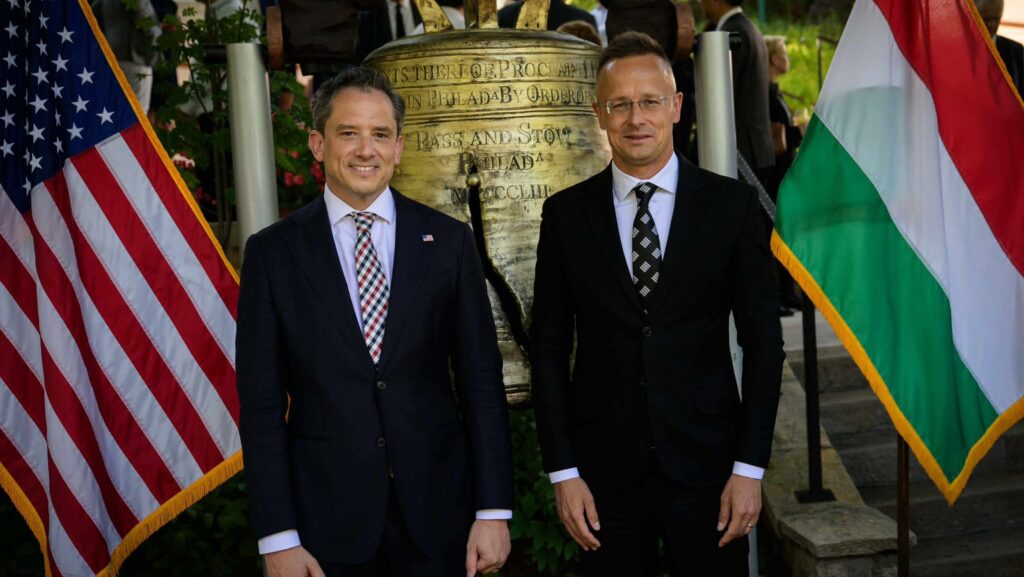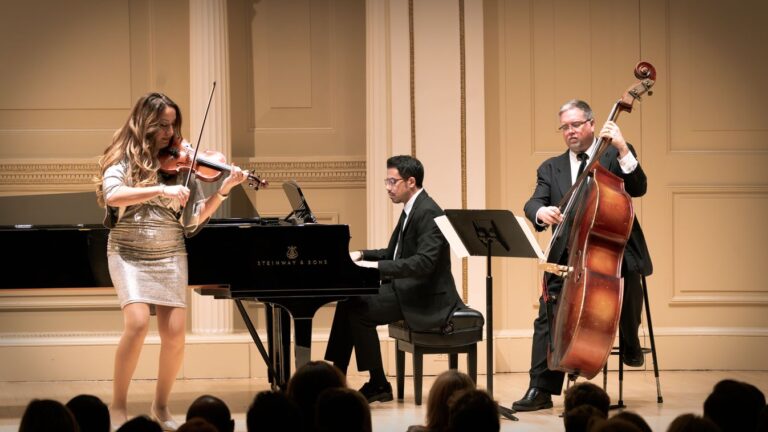Daniel J. Mahoney is a professor emeritus at Assumption University (where he taught from 1986 until 2021), a senior fellow at the Claremont Institute, and a senior writer at Law and Liberty. He has written extensively on statesmanship, French political thought, the art and political thought of Aleksandr Solzhenitsyn, conservatism, religion and politics, and various themes in political philosophy. His most recent books are The Conservative Foundations of the Liberal Order (2011), The Other Solzhenitsyn (2014, reissued in 2020), and The Idol of Our Age: How the Religion of Humanity Subverts Christianity (Encounter Books, 2018) and Recovering Politics, Civilization, and the Soul: Essays on Pierre Manent and Roger Scruton (St. Augustine’s Press, 2022). He has written extensively for newspapers and magazines in the United States and abroad.
In 2022, in your book The Statesman as Thinker, you discussed the qualities of a statesman. Why is it important today?
Everything in the contemporary world conspires against the classical model of statesmanship. My book is what I would call an effort at active recovery, an attempt to remind our contemporaries that the mixture of greatness, courage and moderation that I highlight with my exemplars of statesmanship is rather rare, indeed. It’s always been rare. But it’s always been a real human possibility. With my book, I want to remind the readers that greatness doesn’t mean some fascist demigod. Greatness means an ability to articulate the deepest needs, focus and vision of a free people. I think it’s a vision still worth upholding and recovering.
Do you think that the modern society shares this vision as well?
I think democratic peoples are overvaluing equality, understood as a flattening or levelling of human possibilities. Right now, we have an animus against statesmanship because the statesman is a reminder of certain high or noble qualities that are not equally shared. Everyone knows the idea that democracy is just government of the people by the people for the people—it is that, of course. But always informed, hopefully, by some wisdom. And I think we’ve lost touch with that possibility.
If we look around the world today, we have to look for such qualities with a magnifying glass. Where have the statesmen gone?
Well, it’s a very good question. To begin with, we simply don’t have political men who have benefited from a serious liberal education. Take Winston Churchill, who was born in 19th century England, in the Victorian era. He was half British, half American, coming from the British aristocracy-—yet in many ways, he was a democratic man. Furthermore, he was an extremely well-read man; he read the classics, he read much political history, and he had a deep historical and moral imagination. One reason why he could speak so eloquently during the Cold War about the enslavement of Eastern and Central Europe is that those countries meant something to him. I just don’t think that that kind of education is valued today. The focus of political men today is extremely narrow. On the one hand, it’s centred mainly on electoral politics. And if it’s not centred on that, there is what Roger Scruton, the British conservative philosopher calls a ‘culture of repudiation’ actively undermining our civilizational inheritance.
You mean ‘wokeness’, I suppose…
Indeed. Much less so in Hungary, but in the U.S. and England wokeness, although it has been around a long time, has just gained tremendous intensity in the last four or five years. In fact, wokeness is a desire to repudiate the past, to negate or repudiate our moral and civic inheritance, and to tear down the statues, so to speak. There is this unremitting hostility to the legacy of the past. And, returning to your question,
it’s hard to have great statesmen if there’s no soil to draw upon.
Also, I think it also has to do with our politics becoming more ideological, dominated by increasingly stupid clichés. You know, I’m generally friendly to conservative populism as a corrective to the reigning lunacy. That’s because, in my view, you need statesmen to shape and inform and elevate common sense with sound opinions. We have to remind ourselves that it’s much better to have the voice of the people than to have the voice of some totalitarian party or corrupt and quasi-nihilistic intellectual elite. But the popular sentiment needs to be informed and elevated, and that requires authentic statesmanship.
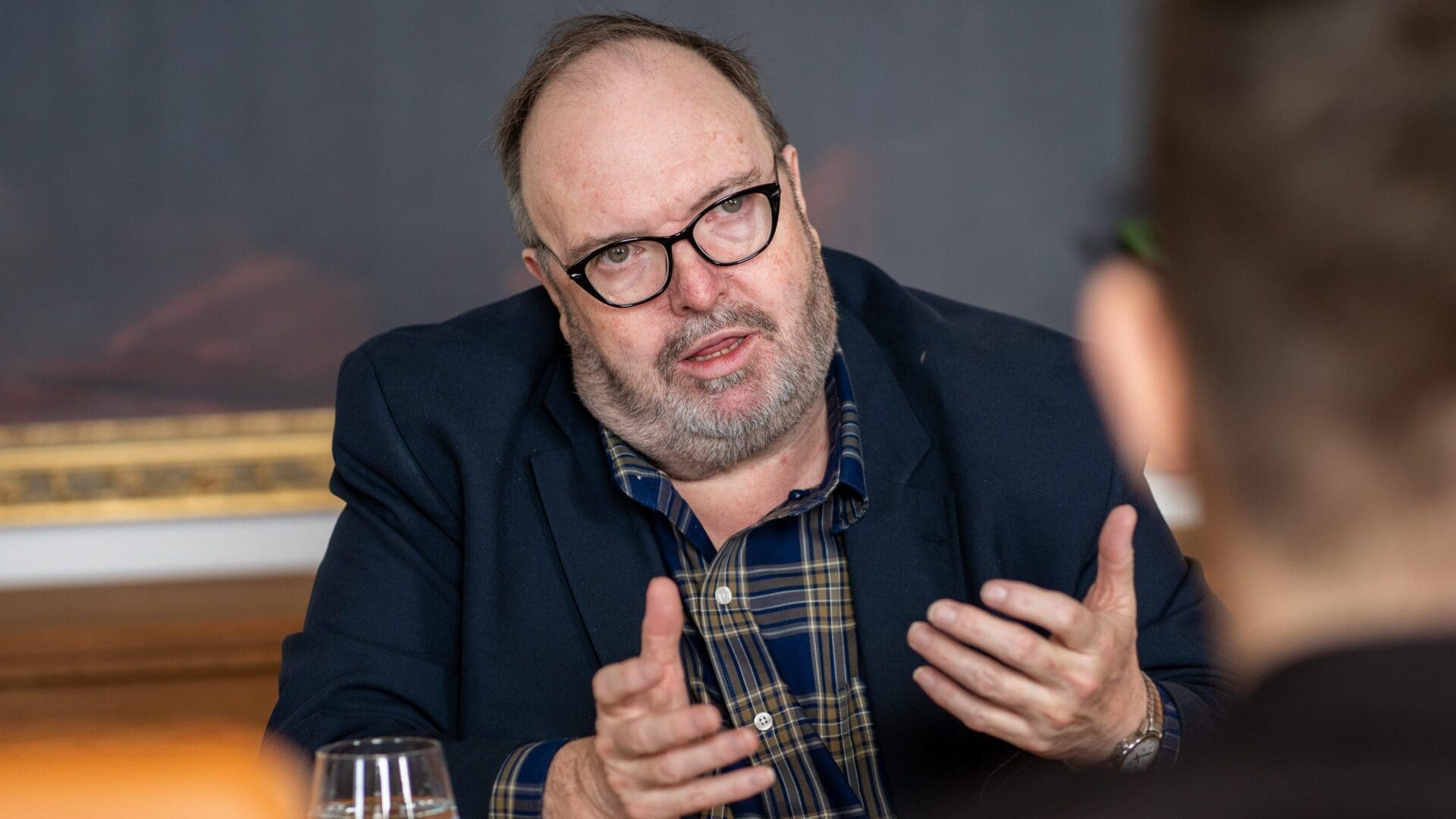
In your work, you regularly praise the work of Roger Scruton. It is a well-known fact that the thinking of the Hungarian Prime Minister is significantly influenced by Scruton’s philosophy. What can a leading politician learn from Scruton?
He or she can learn the vital importance of a home, of humane national loyalty. He can learn to value beauty and truth, and not just what is pleasant and useful. He can learn that human beings are embodied persons and not fodder for social engineering or totalitarian manipulation. And he can better understand the myriad reasons why our civilization is worth preserving. And one can learn how to think and write well, no mean thing in an era where the life of the mind is woefully undervalued.
’Magnanimity’—it’s a keyword of your book when discussing the ideal image of statesmanship. What is the relevance of this virtue?
Magnanimity is simply the Latinate for what the Greeks call ‘megalopsychia’, ‘greatness of soul’. And for Aristotle and Cicero, whom I consider the two greatest articulators of magnanimity in the classical tradition, greatness of the soul was always connected to moral virtue, self-restraint, and a certain respect for the political common good. That would mean that
greatness of soul was at any time and everywhere incompatible with tyranny.
I think this vision of human greatness tied to self-restraint, or in other words, limits within the soul of the statesman, have been a very central value and virtue within the Western tradition. I think it deeply informed European models of Christian kingship. The Christian king was never a tyrant, at least in principle. And I think we have to be very careful with liberal democracy because, for an awfully long time, liberal political orders had a place for a more traditional affirmation of human excellence. And that tradition lasted a long time; we even can find examples from the 20th century. I am talking about figures like Charles de Gaulle who was a conservative-minded democrat. He defended liberal democracy, but he was not a liberal democrat in his soul. He was not a radical egalitarian; he did not repudiate human greatness.
Given the current state of progressivism and the disputes about the concept of liberal democracy, I sense some kind of discrepancy here. Is this virtue somehow in conflict with the concept of liberal democracy?
We have to be very careful with what goes by the name ‘liberalism’ today. It’s not very liberal. It doesn’t really defend our traditions of freedom. It tries to negate and repudiate them. But we have to be careful because the term ‘liberalism’ has been corrupted by an anti-liberal left. When people hear the word ‘liberal’, they don’t think of the elevation of the more conservative-minded versions of classical liberalism. They think of this semi-nihilistic assault on the past. On the other hand, I do think it’s a mistake to say that ‘what we prefer is illiberal democracy’. We prefer a democracy that is open to the life of the soul towards our civilised inheritance.
Personally, I would prefer a democracy that’s both conservative and liberal.
But it’s very hard. I understand why some conservative-minded and conservative-populist defenders of democracy attack liberalism. They are attacking what liberalism has become—its degenerate form. The problem is that when a conservative-minded politician designates his opponent, that opponent might easily claim victory by saying that he, as a member of the liberty party, is a defender of liberalism. It’s often problematic, given that in most cases, there is no liberty party at all—just a party that wants to silence two-thirds of the society.
Is it possible to reconnect the tradition of magnanimity with the concept of liberal democracy?
Yes, and I think it’s very important to do so. Freedom is ultimately a freedom to acknowledge human virtue and excellence. Freedom is not just the right to do your own thing, to tear it down or to be ignorant. One thing liberal society needs to restore is a sense of gratitude. It is not immoral to admit that our forebears were imperfect, but we’re nothing without what they passed onto us. Reconnecting to the wisdom of the past is going to be really hard because the two poles have been so radically severed.
Can magnanimity be fulfilled outside the context of liberal democracy? I’m asking this because some say that some Western societies have become so ‘progressed’ on the path to ultimate egalitarianism that political leadership influenced by virtuous statesmanship might be too harsh for them now. To be more specific, for example, for me, progressed identity politics sounds incompatible with what you have said about the traditions of conservative-minded statesmanship…
I am aware of the view that we’ve ‘progressed’ to a point where with the help of constitutional limitations and social progress we don’t need statesmanship. But I think that’s wrong. We always need statesmanship in a crisis and crises are not so rare. Secondly, I think liberal democracy today is based on the fiction that the distinction between the few and the many can be overcome. And maybe in a richer society, it can. But let me react to this fiction with Aristotle’s words saying that society is always made up of the few and the many. Political life is always oligarchic; it’s always got elites. So, the question is: are those elites accountable, self-limiting, moderate, and respectful of the common good, or are they tyrannical, rapacious and selfish? Without education in self-command, it’s very easy for our elites—whether one acknowledges their existence or not—to become crass and even tyrannical. Or ridiculously woke, as we see today.
So that we don’t just talk in riddles, how would you describe the current tendencies of policymaking today?
We have a very paradoxical situation in parts of the West today: our elites have become much more nihilistic and much more radically egalitarian than the people. That’s a kind of reversal—it’s not the people who are demanding the levelling of everything. It’s these demi-educated elites. That is why I think we will always need statesmanship. I think Raymond Aron’s point was that it’s a mistake to pretend that the struggle for power doesn’t exist—it does. But it’s a mistake to reduce politics simply to the raw struggle for power and to leave out those very important ideas about justice and the common good that are also essential parts of political reality. It’s true that the term ‘statesmanship’ is a challenge to democratic orthodoxy. It’s a challenge to the myth of complete equality. But I would say that you’re always going to have the few and the many. And you’d better make sure that the people in the positions of responsibility have some understanding of moral nobility and political responsibility. And I don’t think that we are good at that today. We just take for granted that that will happen. But it doesn’t happen automatically.
Let’s talk about Hungary. The political leadership aspires to connect Hungarian democracy to the larger national history. Would you comment on that?
I think it is a very salutary aspiration, and it is unfortunate that in many parts of the West today if you defend the nation as sort of a home of civilised life and politics, you are accused of being illiberal. And indeed, this is the issue with Orbán’s speech in 2016.
His instinct about the pitfalls of liberal democracy was right,
but I don’t think that we gained by saying that ‘we are the illiberal party’ because that becomes a weapon that will be used against defenders of sane democracy who esteem patriotic attachments and respect for common sense and religious traditions. And that is a problem, given that he was right when he suggested that this deranged version of liberal democracy has no place for moral nobility and is hardly a friend of liberty.
So, the question arises: how to properly name things?
I think it’s very difficult because if liberal democracy ceases to be itself, we need to find a vocabulary that describes what we reject and what we affirm. But ideally, this vocabulary must not confuse and mislead either, and certainly should not give ammunition to those who want to attack old traditions and truths.
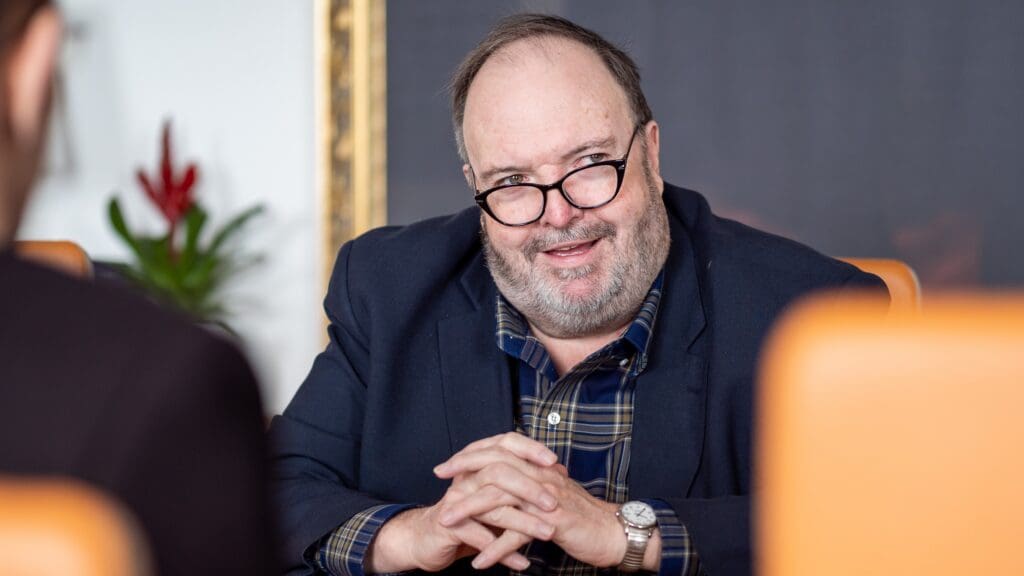
In your book, following Pierre Manent, you attach special importance to the concept of ‘commanding practical reason’. Could you elaborate on this concept and its significance?
Pierre Manent is a contemporary liberal-conservative French philosopher. One of the things he’s trying to do is to reconnect the notion of liberty with natural law and to reconstruct the objective standards for judging right and wrong. But natural law goes hand in hand with practical reason. That means that we don’t just pose the notion of the good; instead, we have to cultivate civic and moral judgement in our personal lives and our public lives. Manent has a very interesting notion in his book titled ‘Natural Law and Human Rights’ that he calls ‘commanding practical reason’. He suggests that in important respects we are free. But free to do what? Free to choose what? Something has to inform and inspire choice. And practical reason is what the human capacity in a concrete situation enables in order to do justice, to do what a decent, honourable human being would do in certain circumstances. That means that there has to be a hierarchy of good—we have to prefer nobility to baseness, truth to falsehood, generosity to selfishness, etc.
So ‘commanding practical reason’ is something one has to practice in fact?
Indeed. One needs to exercise practical reason. We have to get over this notion that all of our moral and political choices are arbitrary, that we just choose our values and then act. That’s not how the world works. We have a human nature; we have certain motives. The honourable, but also the pleasant and useful which are not unimportant either. If they are disconnected from the just, the fair and the honourable, they can become corrupt. So
commanding practical reason is a faculty that every human being has, but it has to be cultivated by liberal and religious education, by a knowledge of history.
It allows us to choose and hopefully choose well in sometimes difficult circumstances. I think this effort to tie natural law to practical reason gives moral judgement more of a civic dimension.
Recently, as a Visiting Fellow at the Danube Institute, you spoke at a roundtable discussion about the importance of the institution of marriage. How do you think commanding practical reason manifests itself in the field of family policy?
Well, practical reason is connected to a certain normative understanding of human nature. There really is a human nature. It is flexible in many ways. For example, there are going to be some differences in family lives in different cultures and traditions. But I would say that if there is a human nature that is social in character, or—as Saint Thomas would say—social in a political sense, then there are consequences for that. And the family is the centre of social life. It is not by accident that every radical political order in its more aggressive ideological phases is interested in undermining the family.
Would you elaborate on that?
It is almost a cliché these days that we are obliged to love our neighbour. But to dig deeper, the love of neighbour begins with the love of our own. The family is a reminder of that. You know this ideological notion that we love humanity in the abstract does not presume that one automatically loves actual human beings. Paul Johnson, a British journalist and intellectual historian liked to say with a certain glee that many of the modern intellectuals love humanity, but hate real human beings. How true that is. So, if we look at the concept of family, we find that it is very concrete. It is the womb of all of our affections. It is very hard to love your country if you don’t have deep roots within—let’s say—family structure.
If we are talking about family, are we talking about only the traditional concept?
No, I mean let’s not constrict the scope of the examination. Perhaps the traditional family in the past could be excessively patriarchal. So I think that we now all acknowledge that enhanced rights for women are a good thing. But on the other hand,
the natural family presupposes the natural complementarity of women and men.
But here comes this notion that is so widespread in the most progressive countries in the West today, that marriage is just a contract, that anyone can marry, it doesn’t matter if you’re a male or a female, or if you define yourself as being non-binary—whatever that means, considering that currently there are said to be countless genders. In this regard, what we are dealing with is some kind of metaphysical madness.
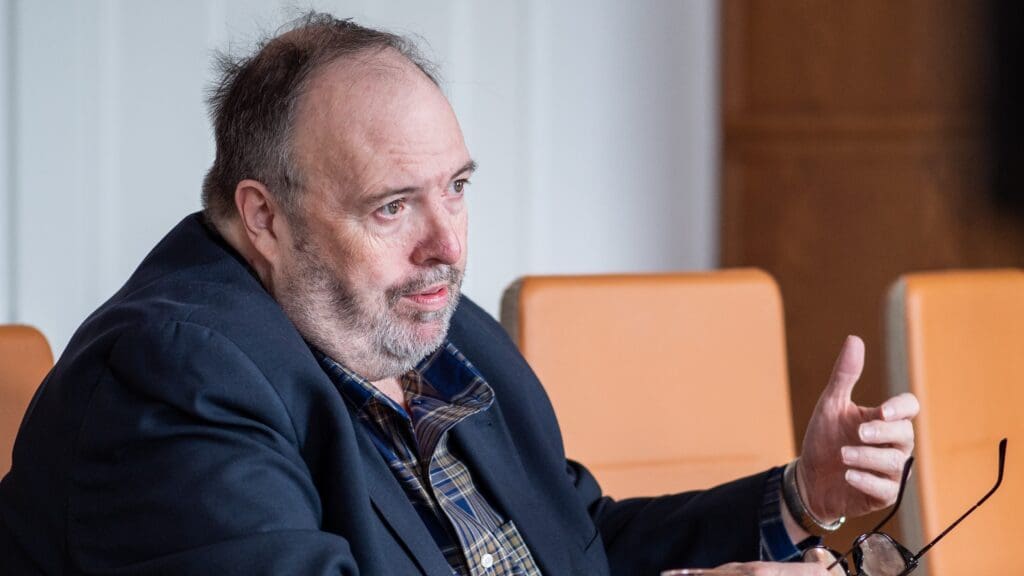
Metaphysical madness?
Yes, all of this has no correlation with empirical reality. It is a form of angelism. I am talking about the idea that we can make ourselves whatever we want to be, that we have no bodies and no human and biological nature that limits and structures who we are. You can simply announce that you’re the other sex—or to be ‘politically correct’—gender. It is to be noted, that gender cannot be a substitute for sex, because this word has no connection to nature or to the body. Still, if somebody—a celebrity or a politician—announces on Tuesday, that he is a woman, on Wednesday, Wikipedia rewrites the entire biography and says that they were ‘misgendered’ by the doctors when they were born. This is crazy in a deep and fundamental way.
You say it’s crazy, but all this is in fact part of the narrative according to which these revolutionary thoughts about gender are parts of the concept of liberal democracy. Is it really?
Your question leads us back to our previous discussion about liberal and illiberal democracy. For 160 years, liberal democracy had been perfectly at home with the natural family. So, this idea that democracy demands the abolition of sexual biology promptly presses the question: what is so magic about the ‘number of two’?
If marriage is divorced from embodied personhood, from the complementarity of men and women, and from procreation, why can’t fifteen people be in a marriage?
There is no principled or logical response to that. Let me relate the family issue to public policy just a little bit. I would say, that in the 1970’s the big concern of the West was the population explosion. There is no population explosion in the Western world. There is an implosion. And that is caused by—among many things—a sort of liberation from the idea that the family is the central feature of human and social life. So, I think sensible family policy in the West has to be concerned with addressing this demographic problem. That means encouraging people to have children.
How does the issue of willingness to have children develop overseas?
That is very interesting in the United States, for example, that the communities where people are having children tend to be traditional communities. I’m speaking about for example Orthodox Jews, serious Roman Catholics, Mormons. Secular-minded Americans are just not getting married at the same rate and not having many children. It’s interesting to see, especially in comparison with Hungary. I know your country has placed a lot of emphasis on family policy. You have 9.6 million people living here. You know a country suffering from significant population decline ceases to have any real significance to the outside world.
I think the Hungarian conservative family policy is perfectly sensible from both moral and political points of view.
It is rooted in a significantly saner understanding of the relationship between family and politics than the one that has become dominant in England and in America today.
The Hungarian government puts great emphasis on the Judeo-Christian roots of the current policymaking. As a response, the opposition fires back with saying that the conservative government decouples the society from modernity. How would you comment on that?
It’s true, that these measures can be accompanied by some kind of romanticism—especially in Hungary there’s a lot of talk about the Christian character of the family. But it does not mean that the Hungarian society is not modern. It is modern in many ways. It strikes me that most of the policies that the Fidesz government follow here are defensive. These policies are efforts to check if the country moving in the same direction as most Western democracies. And that’s a good thing. I wish we had more of a check on the directions of American society. When people don’t consider the family to be the central unit of society, that really does raise some fundamental questions about the future. We need modernity while avoiding what the political philosopher Eric Voegelin so suggestively called “modernity without restraint.”
Why is a political community interested in the family?
Because it is interested in the future. And if you break the link between family and procreation and family has no connection to the natural features of human beings, then it’s just a form of voluntary association that has no links to human nature, to political society or to the production of new citizens in the future. Society becomes a spiritual wasteland, bereft of meaning and purpose and open to the most nonsensical ideological modes of thinking.
In my point of view, the enhanced legal protection of marriage is in accordance with even the progressive worldview—simply because even according to the latest liberal standards, positive discrimination is permitted. So, if we take a look at the various ways of cohabitation, and the legislator chose marriage to be favoured by the law—because this way of cohabitation is reproductive and practically underpinned by organically evolved traditions –, then this preference should be not against the standards of liberalism. Do you agree?
Yes, what Hungary has enshrined into law was commonplace in every Western democracy until a half generation ago. So, what we are seeing is not that Hungary is reactionary. It is that the Western democracies have given way to really revolutionary abstractions, and unworkable ones at that. We are only going to see the real consequences of this in two, three or four generations—but it is not going to be pretty.
It is very-very strange that some people in the West think that Hungary is reactionary simply because of having a sane family policy.
I mean there are also lots of things to criticise in Hungary—like in any other country—, but this is not one of them. For me, this seems to be an example of where Hungarian conservatism is much saner than what you are getting in my country for example. I don’t want to overstate, but half of Americans think about these matters just like Hungarians do.

